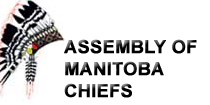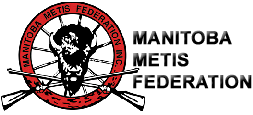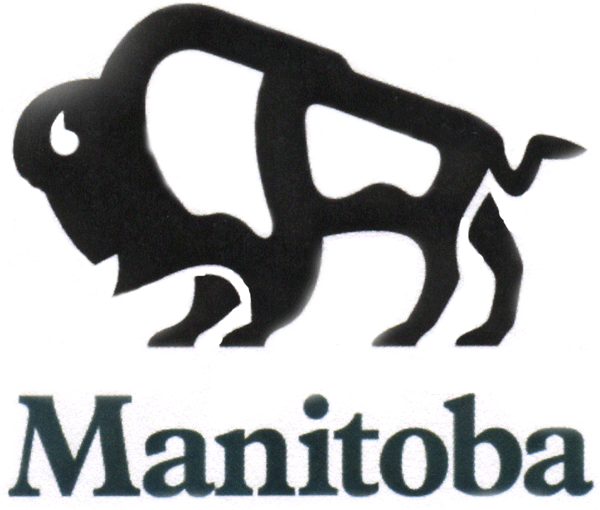Briefing Document of the Aboriginal Justice Inquiry
— Child Welfare Initiative
Special Focus: Work Phases
Background:
The Aboriginal Justice Inquiry--Child Welfare Initiative represents a
joint initiative between the Government of Manitoba and the following
signatories to the Memoranda of Understanding (MOU): the Manitoba Metis
Federation (MMF), representing the Metis, the Assembly of Manitoba Chiefs
(AMC) representing southern First Nations; and the Manitoba Keewatinowi
Okimakanak (MKO), representing northern First Nations.
A Child and Family Services Protocol describes the framework and structure
for the implementation process. Within the MOU-CFS Protocol, a Joint Management
Committee, comprised of representatives of each of the parties, was established
as one of the initial steps taken in the Initiative. The Joint Management
Committee is responsible for overseeing the development of the implementation
plan.
Vision and Mission Statements:
The vision of the Joint Management Committee is:
| A child and family service system that
recognizes and supports the rights of children to develop within safe
and healthy families and communities, and recognizes that First Nations
and Metis peoples have unique authority, rights and responsibilities
to honor and care for their children. |
The following mission statement was developed:
| To have a jointly coordinated child and
family services system with three distinct mandates (First Nations,
Metis and non-Aboriginal); that is community-based; and reflects and
incorporates the cultures of First Nation, Metis and non-Aboriginal
peoples. |
For further information please refer to an earlier document,
Background
Briefing Document of the Aboriginal Justice Inquiry - Child Welfare Initiative.
Schedule of Work Phases. A schedule of work has been adopted based
on five separate phases. Each phase is dedicated to a step in the overall
process leading to the establishment of separate and distinct province-wide
child and family service mandates namely, First Nations, Metis and non-Aboriginal.
The proposed schedule of phases is as follows:
- Phase 1: September 2000 to December 2000 - Working Groups struck;
within the context of strategic design principles, WGs develop proposals
and recommendations for the draft implementation plan.
- Phase 2: January 2001 to March 2001 - Implementation Committee
prepares a consolidated draft implementation plan based on Working Groups'
final reports and written submissions received December 31, 2000.
- Phase 3: April 2001 to August 2001 - Detailed implementation
plan developed.
- Phase 4: August 2001 to March 2003 - Plan substantially implemented.
- Phase 5: April 2003 to October 2003 - Stabilization of changes
implemented.
Phase 1: Data Gathering and Proposal Development:
In September 2000 the Joint Management Committee initiated the Working Group
process by striking seven Working Groups each charged with their specific
statement of work. The seven Working Groups reflected broad areas to be
examined in light of the change process. They included:
- Research
- Inter-jurisdictional/Inter-sectoral
- Financial
- Human Resources
- Service Delivery
- Legal/Legislative
- Technology
Balanced representation and a common process were reflected in all undertakings.
An Implementation Committee, representative of all parties, was charged
with the responsibility for overall management and coordination of the
Working Groups; providing interpretation of Joint Management Committee
direction; and ensuring Working Groups achieved their objectives and
met established deadlines.
Phase One Completed: Numerous agencies,
individuals and service users, from child welfare, health, justice, and
education sectors contributed various forms of input to the Working Group
common process. Community members also submitted their thoughts and recommendations
in writing. The level of participation demonstrated a shared commitment
to improving the child and family services system in the province. Working
Groups achieved their objectives and met established deadlines.
Phase 2: Analysis and Design:
The completion of Working Group reports signaled the start of Phase 2. To
date, the following tasks have been accomplished:
- Completion of a notional work plan and time line by Implementation
Committee.
- Approval by Joint Management Committee of Phase 2 terms of reference
for the Implementation Committee.
- Preliminary analysis of final Working Group reports by Implementation
Committee members and respective technical support staff.
Throughout the second phase, the Implementation Committee, are expected
to support Joint Management Committee to develop a draft implementation
plan. Implementation Committee will achieve this objective by synthesizing
and building upon the reports of the Working Groups. According to the
established time frame, a detailed plan for the implementation process
is scheduled to be submitted to the Joint Management Committee on March
21, 2001. The final report is to be delivered to Executive Committee members
for their consideration by March 31st.
Contact Information:
Assembly of Manitoba Chiefs
Trudy Lavallee
2nd Floor - 260 St. Mary Avenue
Winnipeg, Manitoba R3C 0M6
(204) 956-0610 |
Manitoba Metis Federation
John Lussier
3rd Floor - 150 Henry Avenue
Winnipeg, Manitoba R3B 0J7
(204) 586-8474 |
Manitoba Keewatinowi Okimakanak
Winnipeg Sub-Office
Colin Kinsella
201- 274 Smith Street R3C 1K1
Winnipeg, Manitoba
(204) 987-7500 |
Province of Manitoba
Family Services and Housing
Patrick Falconer
216 - 114 Garry Street Winnipeg, Manitoba R3C
4V4 (204) 945-6731 |
Interested parties can also obtain further details by calling our Central
Information Line at 945-1183. If you reside in a remote, northern,
or rural part of the Province, call toll-free at 1-866-300-7503.









